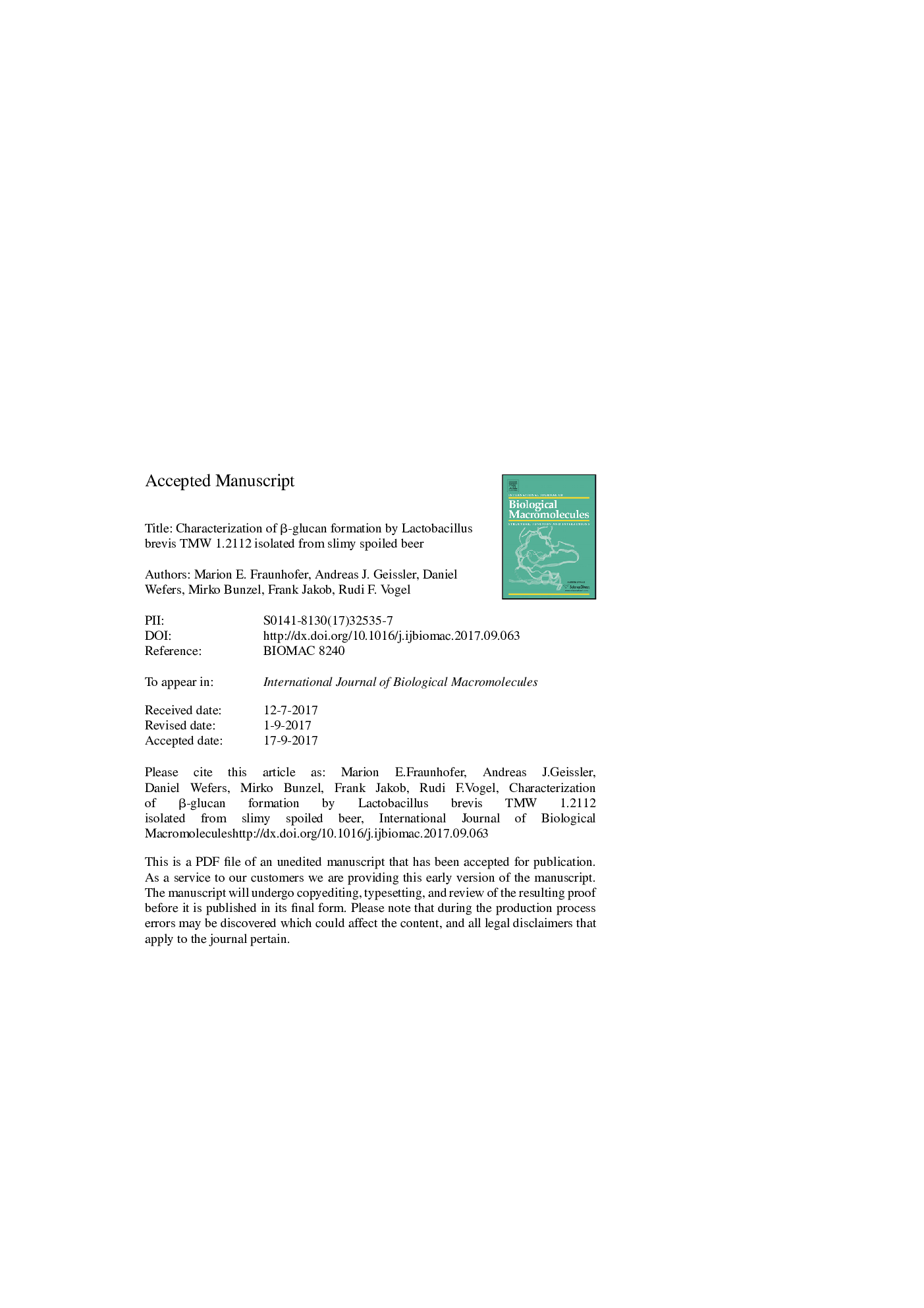| Article ID | Journal | Published Year | Pages | File Type |
|---|---|---|---|---|
| 8329253 | International Journal of Biological Macromolecules | 2018 | 28 Pages |
Abstract
Despite several hurdles, which hinder bacterial growth in beer, certain bacteria are still able to spoil beer. One type of spoilage is characterized by an increased viscosity and slimy texture caused by exopolysaccharide (EPS) formation of lactic acid bacteria (LAB). In this study, we characterize for the first time EPS production in a beer-spoiling strain (TMW 1.2112) of Lactobacillus brevis, a species commonly involved in beer spoilage. The strain's growth dynamics were assessed and we found an increased viscosity or ropiness in liquid or on solid media, respectively. Capsular polysaccharides (CPS) and released EPS from the cells or supernatant, respectively, were analyzed via NMR spectroscopy and methylation analysis. Both are identical β-(1 â 3)-glucans, which are ramified with β-glucose residues at position O2. Therefore, we assume that this EPS is mainly produced as CPS and partially released into the surrounding medium, causing viscosity of e.g. beer. CPS formation was confirmed via an agglutination test. A plasmid-located glycosyltransferase-2 was found as responsible for excess β-glucan formation, chromosomal glucanases were proposed for its degradation. The glycosyltransferase-2 gene could also be specifically identified in beer-spoiling, slime-producing Lactobacillus rossiae and Lactobacillus parabuchneri strains, suggesting it as promising marker gene for the early detection of β-glucan-producing Lactobacilli in breweries.
Related Topics
Life Sciences
Biochemistry, Genetics and Molecular Biology
Biochemistry
Authors
Marion E. Fraunhofer, Andreas J. Geissler, Daniel Wefers, Mirko Bunzel, Frank Jakob, Rudi F. Vogel,
